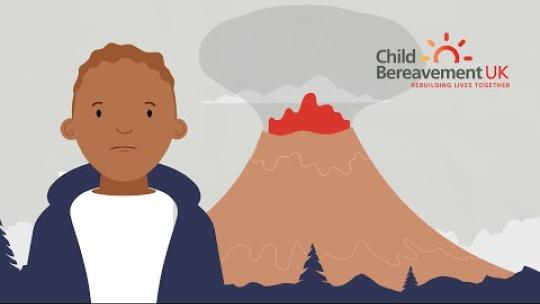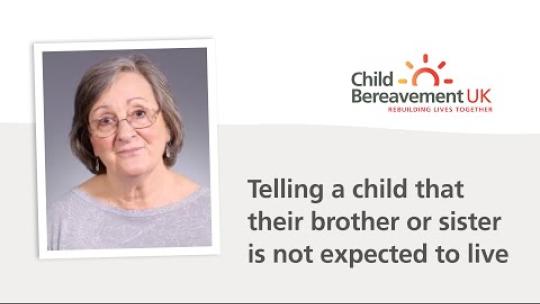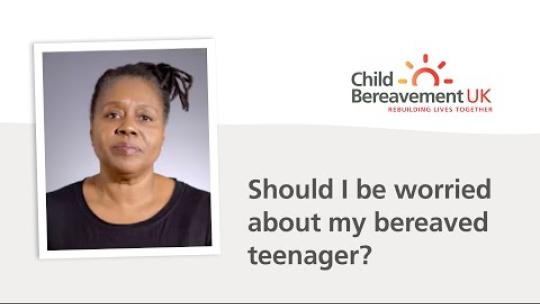Resources for families
When a loved on dies, it can elicit a range of reactions and needs from each individual affected by the loss. If you have been impacted by a loss, here you will find some helpful materials and links to other resources and support.
Helping yourself through grief
However overwhelming your feelings of grief, it is possible to find ways of moving forward and facing what has happened, especially with support that is right for you. Grief is messy, exhausting and relentless, but it is survivable. As humans we have infinite resources within ourselves to heal and manage grief, but we need to allow ourselves the time to express the pain first.
There are no rules in grief. It can help to listen to yourself and learn what works for you. Accept that what helps initially may change over time. Whatever happens, be kind to yourself and give yourself time to heal. Although it may initially seem impossible, with the right support you can adjust to a new way of living that includes your grief and the precious connection you still have with the person who has died.
Talking helps
It is helpful to talk, both to family and friends. And you may find that you need to repeat and repeat the events of the death in order to make some sense of what has happened.
Often it is those closest to us, our family, with whom we have most difficulty communicating when someone dies. It may be that other family members are grieving too and may not be able to offer you the support you need. This can leave us feeling misunderstood, unrecognized, hurt and angry. You may be able to help your family support you by being clear with them about what you need. Family members or friends in a supportive role tell us that it can be a relief to be given clear guidance from those they want to support.
It may be that some family or friends around you have good intentions of supporting you but are unable to communicate this. In some families, it is difficult to communicate generally for various reasons. You may be able to find other people outside of your family who can support you in a more helpful way.
Managing isolation and difficult feelings
Grief can be very isolating. Finding information about bereavement support, or joining a support group, can help you to realize you are not the only one and that what you are feeling, painful as it may be, is normal.
Writing in a journal or diary can be a way to express and release feelings. It can also be a helpful record for you to look back at your process of grieving over time and note any changes.
You may notice that you are not be able to function as effectively as you normally do. You may be tired, have a poor memory, find it difficult to concentrate, or feel that nothing is important. You could make a note of those things that you worry you might forget, and set yourself one achievable task a day.
One of the most difficult aspects of grieving is the feeling of being out of control. It may be hard to keep a structure to your day, but this can help you to manage feelings of being overwhelmed.
For instance, you could do essential chores in the morning and exercise in the afternoon. If possible, plan activities that will give you some kind of break, like seeing a film that will distract you for a few hours.
We grieve physically in our bodies so exercise, even a gentle walk, can help release some physical tension. Massage can also feel healing when the pain inside feels jagged, like a physical wound.
If you feel furious and don’t know what to do with your rage, try finding ways of expressing your anger physically, such as hitting a pillow or tying a knot in a towel and hitting something unbreakable! Jumping in puddles is satisfying or kicking through leaves. Gardening or other absorbing work outside can help to release energy created by anger. Some people may find kick-boxing or other forms of exercise helpful too.
Along with physical activity, it can help to shout or yell at the same time. Make sure that you are safe and cannot hurt yourself, and that you are private and cannot be heard. If you have been angry on your own, find someone to comfort you afterwards. Some people believe expressing anger generates more anger, rather than releasing it, but others do not share this experience. See for yourself whether this works for you. There is more about physical wellbeing and grief in our information sheet Looking after yourself.
Remembering is helpful
Find ways to remember the person who has died. You may feel too raw initially, but looking through photographs, recalling experiences or visiting places you went together can help to focus your grief when you are feeling at a loss and hurting too much. If you cry, remember tears are there for a reason, both to let others know that you need support and to release chemicals that calm you.
In time you may want to plant a tree or a shrub in memory of the person who has died. Or you could create something artistic or write something as a tribute to them, if that feels right for you.
Some people find comfort in having a memory box - which you can either buy or make – in which to keep precious possessions. These could be cards, dried flowers, photographs and other special things relating to the person who has died.
Condolences express care
Replying to condolence letters can be healing. Remember, they are written as an expression of care for you and the person who has died, not as something that puts pressure on you. Only reply if that is really what you want to do.
Humor can break through – sometimes things happen that are so insensitive, or things people say are so fantastically unhelpful, the only thing to do is to laugh. Laughing is good and can release tension.
Returning to work or school
If you are returning to work or school, there are ways to ease yourself back in. Perhaps you could ask a work colleague to accompany you to the office on the first day. You could talk to your manager about how they can help support you. Let people at work or college know whether you want to talk about what has happened or not. You can change your mind once you have been back for a while. Make sure that people know as much about your bereavement as you want them to know, so you do not feel they are whispering behind your back.
If possible, try to go back to work or study gradually, working just mornings initially or a few days a week. Do not expect to be able to perform at your usual capacity; try to take on manageable, short-term tasks as big projects can seem overwhelming. Work can be a useful distraction from grieving, but you are unlikely to be able to switch off completely. Give yourself short breaks in the day to go for walks and have moments of peace, or time and space for a few tears.





